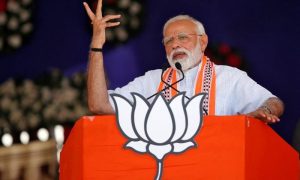ISLAMABAD: Major political parties have announced their manifestos, offering a glimpse into their plans for governing Pakistan’s population of over 246 million for the next five years. The people of Pakistan will elect their leaders on February 8.
It is imperative to scrutinize the promises made to women, who constitute half of the country’s population. PPP, PML-N, PTI, JI, and MQM-P had announced their plans to empower the women in the South Asian country.
Pakistan Muslim League – Nawaz (PML-N)
The Pakistan Muslim League Nawaz (PML-N) manifesto highlights various initiatives for women’s empowerment across economic, legal, well-being, education, and political realms.
Key suggestions include the Beti Ka Tahaffuz, Qom Ka Tahaffuz program for girls’ financial protection, and an extension of the Women on Wheels program. They aim to double the national budget for women’s empowerment and implement infrastructure support measures like working women hostels and transport cards.
To boost economic participation, PML-N also proposes quotas for women-run businesses and government procurements from women-employed firms. They also plan a mentorship program and support for home-based entrepreneurs and the handicraft industry.
In terms of safety, PML-N suggests task forces, women’s police units, helplines, cybercrime wings, and legal measures. Their healthcare proposals focus on reproductive health rights and accessibility to other basic rights, emphasizing rural areas.
In education, PML-N also proposes financial assistance, educational loans, and increased female teacher recruitment.
Political empowerment measures include reserved seats, constitutional amendments, and legislation for women’s representation.
Pakistan People’s Party
The Pakistan People’s Party (PPP) manifesto for the upcoming election outlines a strategy for women’s empowerment across healthcare, political, economic, and educational sectors.
Economic initiatives aim to ensure equitable resource distribution, with a focus on vocational training and land reforms. Healthcare pledges primarily target maternal health and family planning, but broader women’s health issues need attention, alongside reproductive justice principles.
Political reforms include legal changes to support single parents and combat prejudice, alongside efforts to increase women’s political representation.
Electoral reforms aim to increase women’s participation and ensure fair ticket distribution. Education pledges include increasing girls’ enrollment, addressing systemic barriers, and incorporating digital literacy, but curriculum biases need addressing.
Overall, the manifesto emphasizes the need for comprehensive reforms to uplift women across various sectors.
Pakistan Tehreek-i-Insaf (PTI)
The Pakistan Tehreek-i-Insaf (PTI) also presents a plan for women’s empowerment in their manifesto. PTI pledges to review and eliminate discriminatory legislation while ensuring equal pay and supporting women’s education and professional growth.
Jamaat-i-Islami (JI)
JI’s manifesto emphasizes education, inheritance rights, and workplace policies for women in the South Asian country. It pledges compulsory education up to matriculation and equal opportunities for further studies but lacks specifics on addressing gender biases in the curriculum.
Muttahida Qaumi Movement-Pakistan (MQM-P)
MQM-P aims to create an environment where women have control over their lives and equal access to resources. They propose legislation, punitive measures against violence and discrimination, public awareness campaigns, and increasing women’s representation to 50%.























